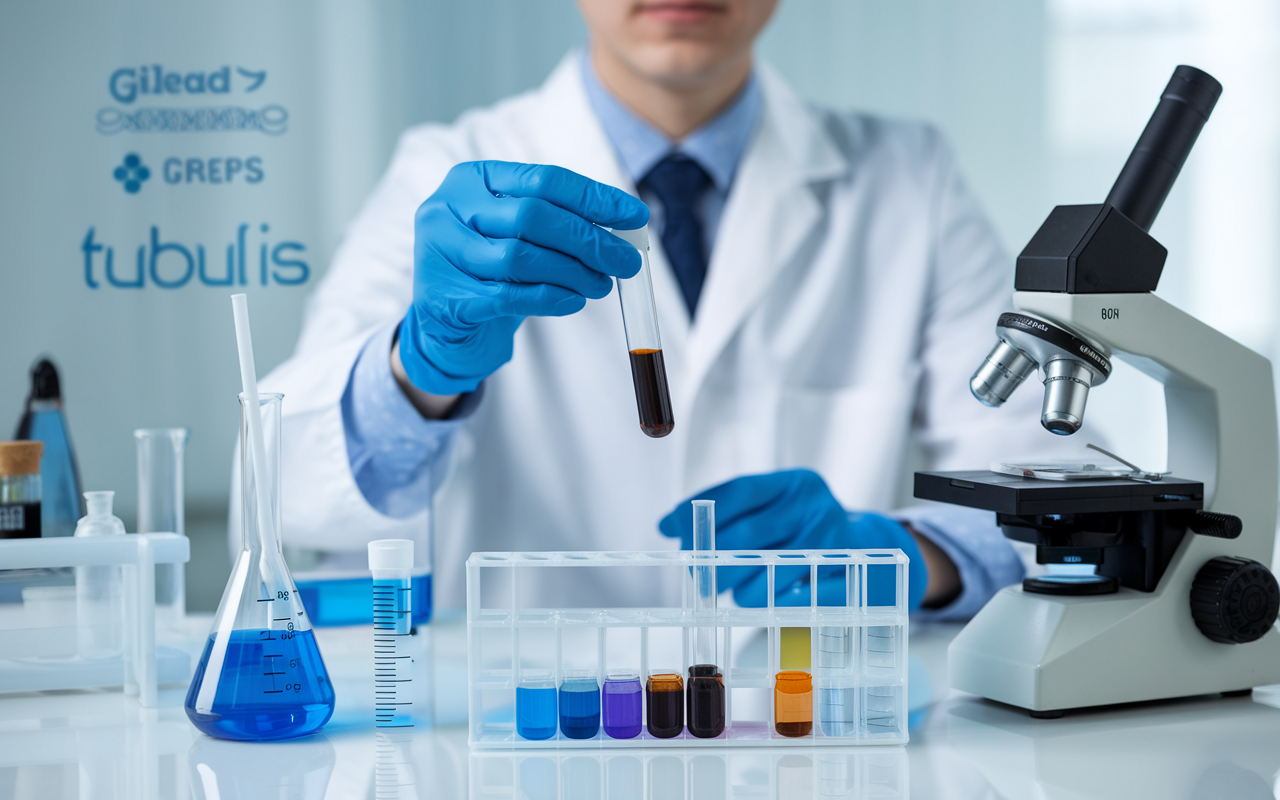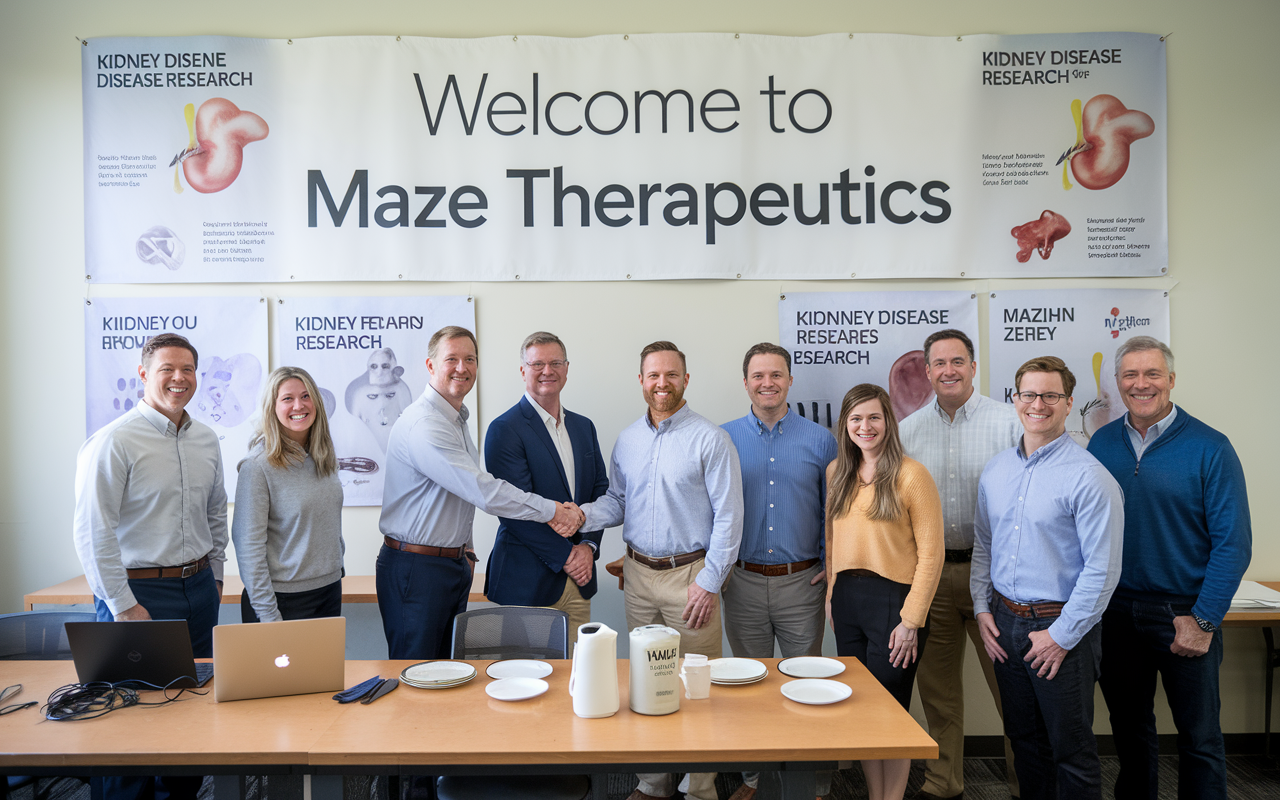Greetings, BioPharma Enthusiasts!
Welcome to another edition of BioPharmaPulse! Today's issue is packed with the latest breakthroughs and deals shaping the future of biopharmaceutical innovation. Let's dive into the exciting developments together.
What's in this issue:
- 💊 Takeda's bold move into anemia treatment
- 🧬 Gilead's partnership to advance antibody-drug conjugates
- 💰 Maze Therapeutics' significant funding boost
- ⚡ Janux's promising prostate cancer drug data
- 🎯 Industry insights on the rise of T cell engagers in cancer therapy
Quote of the Day
"The art of medicine consists of amusing the patient while nature cures the disease." — Voltaire
Latest Developments
💊 Takeda to pay $200M for rights to anemia drug from Keros (1-minute read)

Rundown: Takeda is investing $200 million upfront to license an experimental anemia drug from Keros Therapeutics. This late-stage drug aims to treat myelodysplastic syndrome and myelofibrosis, expanding Takeda's oncology portfolio amid a strategic revamp.
Key Points:
- 💰 Takeda's significant upfront payment underscores the drug's potential
- 🩸 The drug targets anemia associated with bone marrow disorders
- 🧪 Late-stage trials suggest promising efficacy
- 🌐 Enhances Takeda's global oncology footprint
Why it matters: Anemia in cancer patients remains a significant unmet need. Takeda's investment could lead to improved treatments for patients with myelodysplastic syndromes and myelofibrosis, potentially enhancing quality of life and outcomes.
🧬 Gilead makes another ADC move, inking up to $415M pact with Tubulis (1-minute read)

Rundown: Gilead Sciences is partnering with German biotech Tubulis in a deal worth up to $415 million. The collaboration focuses on developing antibody-drug conjugates (ADCs) targeting solid tumors, leveraging Tubulis' novel ADC technology.
Key Points:
- 🤝 Gilead expands its oncology pipeline through collaboration
- 🔬 Tubulis' ADC technology promises enhanced precision
- 🎯 Focus on difficult-to-treat solid tumors
- 🌟 Potential to improve therapeutic outcomes in oncology
Why it matters: ADCs represent a promising frontier in targeted cancer therapy. This partnership could accelerate the development of more effective treatments for solid tumors, addressing a critical need in oncology care.
💰 Maze Therapeutics looks to steer lead kidney disease assets through the clinic with $115M Series D (1-minute read)

Rundown: Maze Therapeutics has raised $115 million in a Series D funding round. The funds will support the clinical advancement of its lead programs targeting kidney diseases, following a strategic refocus and spinout of its ALS assets.
Key Points:
- 📈 Significant investment reflects confidence in Maze's approach
- 🩺 Focus on genetically informed therapies for kidney diseases
- 🔄 Strategic pivot enhances focus and resource allocation
- 🚀 Positions the company for impactful clinical progress
Why it matters: Chronic kidney diseases affect millions worldwide with limited treatment options. Maze's genetically targeted therapies could offer new hope for patients, potentially transforming disease management.
Question of the Day
🤔 What emerging area in biopharma excites you the most?
Trending
⚡ Janux impresses Wall Street with new prostate cancer drug results
- Janux Therapeutics' shares surged after promising early-stage results for their prostate cancer drug, highlighting potential breakthroughs in T cell engager therapies.
🔬 Bristol Myers Squibb taps AI Proteins in drug discovery collaboration worth up to $400M
- BMS partners with AI Proteins to design novel "miniproteins" using artificial intelligence, aiming to accelerate drug discovery processes.
🌐 GSK makes another ADC deal, this time with BioNTech's partner DualityBio
- GSK expands its ADC portfolio by partnering with DualityBio, emphasizing the growing interest in antibody-drug conjugate technologies.
Industry Insight
🎯 The Rise of T Cell Engagers in Cancer Therapy
T cell engagers are emerging as a revolutionary approach in cancer treatment, bridging cancer cells and T cells to enhance the immune response against tumors. By designing molecules that bind both T cells and cancer cells, they potentiate targeted killing of malignant cells.
These therapies offer promising avenues for treating cancers that are resistant to traditional treatments. Advances in this field, like those from Janux Therapeutics, could lead to more effective and personalized cancer treatments in the near future.
Quick Hits
🧪 Cartesian tees up Phase 3 mRNA CAR-T study in myasthenia gravis (1-minute read)
- Cartesian Therapeutics advances its mRNA CAR-T therapy into Phase 3 trials for myasthenia gravis, aiming to offer a novel treatment for this autoimmune disorder.
💉 Coherus sells its last biosimilar Udenyca to Intas for up to $558M as company homes in on novel cancer meds (2-minute read)
- Coherus BioSciences divests its biosimilar to focus on innovative cancer therapies, marking a strategic shift in the company's direction.
🌿 On heels of MariTide data, Danish obesity biotech discloses €80M Series A (1-minute read)
- Antag Therapeutics raises €80 million to advance its obesity treatment, reflecting the growing investment in metabolic disorder therapies.
🛡️ FDA Grants Breakthrough Therapy Designation to Sacituzumab Tirumotecan (sac-TMT) (1-minute read)
- The FDA grants Breakthrough Therapy Designation to sac-TMT for certain patients with advanced non-small cell lung cancer, expediting its development and review.
Wrap Up
Thank you for joining us on this journey through the latest in biopharmaceutical innovation. It's an exciting time in our industry, with advancements that bring hope to patients worldwide. Stay tuned for more updates, and don't hesitate to share your thoughts on today's topics!
Warm regards,
Elliot Reeves BioPharmaPulse
🧐 How did you like today's email?
- 😍 Loved it
- 🙂 It was OK
- 😕 Could be better
